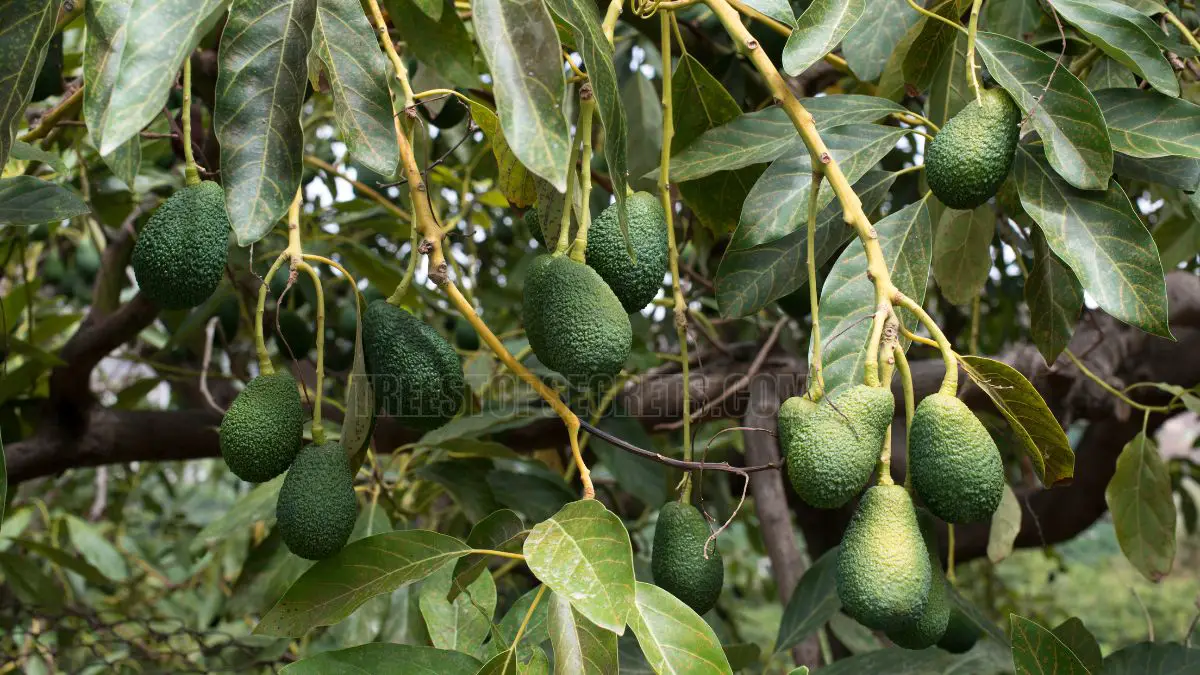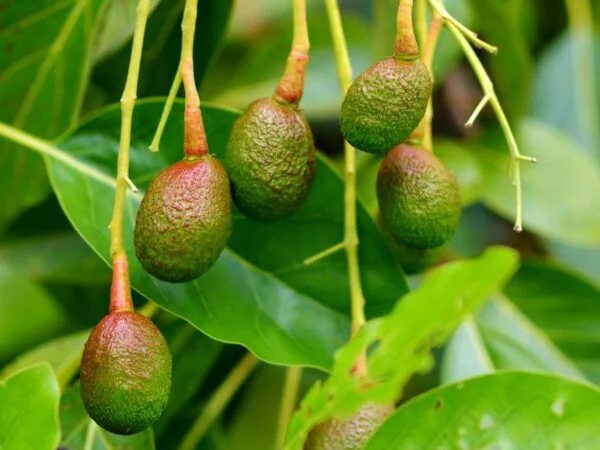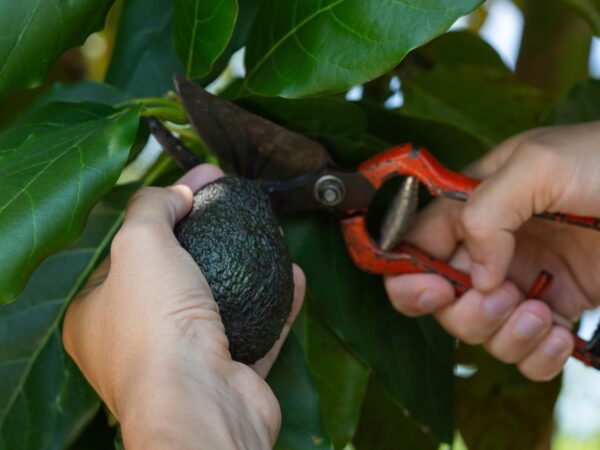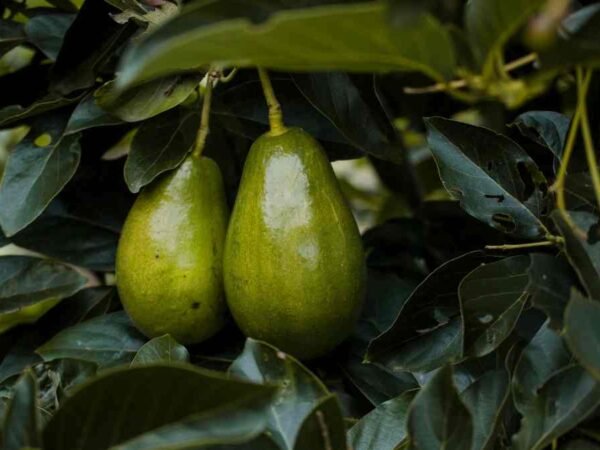Avocados are a delicious and nutritious fruit that many people want to grow at home. But can you grow avocados in Texas? In this article, we’ll explore whether the Texas climate is suitable for avocado growth, which varieties work best, and how to care for your avocado tree. Whether you're an experienced gardener or just starting out, this guide will help you understand what’s required to grow avocados successfully in Texas.
Yes, you can grow avocados in Texas, but the success depends on choosing the right variety and location. Cold-hardy avocado types like 'Mexicola' or 'Joey' are best suited for Texas’s climate. Avocado trees prefer well-drained soil and need protection from frost, especially in the cooler parts of the state. With proper care, your avocado tree can thrive in Texas conditions.
Wondering if you can enjoy homegrown avocados in the Texas heat? We’ve got you covered! Keep reading to discover expert tips, common challenges, and insider secrets for growing avocados right in your backyard. With the right guidance, you'll soon be enjoying fresh avocados from your own tree!
Avocado Farming Basics
Getting into avocado farming can be really fulfilling, especially in Texas where the weather often plays nice for this tasty fruit. Let’s break down the conditions avocados love and how much water they need.
What Avocado Trees Love
Avocado trees dig warm spots with a bit of humidity. Think tropical vibes or somewhere like the Mediterranean. They’re happiest in USDA zones 9 to 11. Down in zone 8, it gets tougher, but with some effort, it can be done. Most modern varieties can take a hit down to 25°F (-4°C), but they’re babies when it hits 104°F (40°C).
| Temperature Range | What it Means |
|---|---|
| 68°F - 77°F (20°C - 25°C) | Best soil temp for growing |
| 25°F (-4°C) | Bleh, but they’ll live |
| 104°F (40°C) | Baby avocados may cry (or die) |
They like well-drained soil; it can be loamy or sandy. The pH should be between 5 and 7, so a bit on the acidic side is cool. Places with waterlogged soils or salty dirt are a no-go. If you’re by the coast, West Indian varieties can handle the salt better.
Water Needs for Avocados
Avocados are thirsty plants. They need between 800-1700 mm of rain each year. If you don't get that much rain, an irrigation system is a must. Hot weather isn’t their friend either. Anything over 40°C can kill flowers, drop fruits, and slash your harvest.
| Water Needs | What it Means |
|---|---|
| 800 - 1700 mm | Rain needed every year |
| Irrigation | Must do if rain falls short |
| Temp Woes | Over 40°C is bad news for trees |
Helping them out with these basics will give your avocado trees the best shot at thriving in Texas.
Growing Avocados in Texas: Tips and Tricks
Raising avocados in Texas? What a joy! I’ve learned a few key tips that keep my trees thriving: tweaking soil pH, keeping an eye on temperatures, and giving them plenty of sunlight.
Getting the Dirt on Soil
A happy avocado tree starts with happy soil. Aim for a pH between 5 and 7. This magic number ensures that the roots can soak up all the good stuff they need. I like to mix in organic material—not only does this keep the soil just right, but it also helps with moisture and gives roots a strong start.
| Soil Feature | Perfect Setup |
|---|---|
| pH Level | 5 - 7 |
| Organic Boost | High |
| Soil Type | Well-draining |
A bit acidic? Great! But these trees are flexible and can handle well-draining alkaline soils too.
Playing it Cool with Temperatures
Avocado trees have a sweet spot: they love it between 60°F and 70°F (16°C to 21°C). However, they can tough it out from -4°C to 40°C. For blooming? They need it to be above 50°F (10°C) and a cool period in the autumn-winter helps them bloom nicely. Mature trees, they're troopers and can handle a bit of cold down to -2°C (28°F).
| Temperature | Sweet Spot |
|---|---|
| Happy Range | 16 - 21°C (60 - 70°F) |
| Tough Range | -4 to 40°C |
| Bloom Time | Above 10°C (50°F) |
Frost isn’t usually a big problem in Texas, but knowing these temps makes a world of difference for my crop.
Fun in the Sun
Sunlight is a must. I make sure my babies get about 6 to 8 hours of it daily. It’s their power source, after all.
| Sunlight | What’s Best |
|---|---|
| Daily Dose | 6 - 8 hours |
Sunlight helps them grow strong and bear that delicious fruit we all love. By sticking to these tips, I give my avocado trees the best shot at success in Texas.
Avocado Tree Varieties: Getting the Right Fit for Texas
Alright, let's talk avocados in Texas! If you want your avocado trees to thrive here, picking the right variety is a must. Each type of avocado comes with its own set of heat and weather preferences. Here’s the lowdown.
Avocado Varieties and Handling the Heat
Texas summers can be scorchers, so you need avocados that won’t wilt under triple-digit temps. Here's the scoop on which varieties are up for the challenge:
Reed and Lamb varieties are the heat champions. They've got a cool attitude even when the thermometer hits 110°F. They hang onto their young fruit like it’s no big deal. On the flip side, Hass trees put up a good fight but can get a little frazzled in prolonged heat waves (Greg Alder).
| Variety | Heat Tolerance | Notes |
|---|---|---|
| Reed | High (up to 110°F) | Keeps its cool and holds the fruit. |
| Lamb | High (up to 110°F) | Heat warrior, barely breaks a sweat. |
| Hass | Moderate (up to 100°F) | A bit of a diva in extreme conditions. |
| Pinkerton | Moderate | Foliage can get crispy. |
| Nimlioh | Moderate | Same drama as Pinkerton. |
Weather Adaptability: Finding the Sweet Spot
Adaptability is key for a successful avocado crop. Let’s take a look at which varieties can handle the typical Texas swings in weather:
Hass likes to chill in average temps of 60-70°F but has no problem dipping to 28°F once it’s all grown up. Young trees, however, might throw a bit of a tantrum if they get too cold.
Prolonged high temps can mess with fruit production, causing flowers to drop or preventing fruitlets from forming during late spring. So, keeping an eye on the thermometer is kinda vital for happy trees (Wikifarmer).
| Variety | Ideal Temp Range | Cold Tolerance | Notes |
|---|---|---|---|
| Hass | 60-70°F | -2°C (28°F) | Tough when older, picky when young. |
| Reed | 59-77°F | -4°C (25°F) | A reliable choice in heat and cold. |
| Lamb | 59-77°F | -4°C (25°F) | Resilient to harsh conditions. |
| Pinkerton | 59-77°F | Needs cover | Vulnerable to the extreme stuff. |
| Nimlioh | 59-77°F | Needs cover | Similar to Pinkerton’s sensitivity. |
Choosing the right avocado variety can make your green thumb look like pure genius. So, go forth and plant with confidence in your Texas yard or orchard!
Thinking About Growing Avocados in Texas? Here's What You Need to Know
So, you're pondering if you can join the avocado boom in Texas. Before you get those green thumbs tingling, let’s chat about what you need to think about. Texas has its quirks—especially when it comes to weather and water. Knowing about these can turn your dream of tasty homegrown avocados into reality.
Texas Weather: It's a Mixed Bag
Texas weather is all over the map, quite literally. From the steamy Gulf Coast to the dry stretches near the Mexican border, there’s a lot to consider.
| Region | Average Temp (°F) | Yearly Rainfall (inches) |
|---|---|---|
| East Texas | 60 - 80 | 40 - 55 |
| Central Texas | 70 - 90 | 28 - 36 |
| West Texas | 50 - 100 | 12 - 22 |
Avocados love warm weather but hate too much water—pretty picky, huh? They flourish in well-drained soil to avoid root rot. And, just like us, they need a little shelter from extreme heat or the occasional cold snap.
Staying Hydrated: Watering Your Avocado Trees
Water's a big deal in Texas and getting it just right makes all the difference. Trees need steady moisture but hate being waterlogged.
Here are some top watering methods:
| Method | What’s the Deal? |
|---|---|
| Drip Irrigation | Puts water directly at the roots. Handy and efficient, and it keeps the trunk dry. |
| Furrow Irrigation | Channels the water to the roots. Not super efficient but can work in a pinch. |
| Sprinkler Systems | Good for big orchards, but a lot can get lost to evaporation. |
Keeping an eye on soil moisture is key. Adjust your watering schedules depending on the weather, and don't forget the magic of mulch—it holds moisture and keeps roots cool.
With a bit of planning and smart water management, your avocado farm can thrive in Texas. Happy farming!
Avocado Farming Challenges
Avocado farming in Texas can be quite the adventure, with its ups and downs. But don’t worry, understanding what lies ahead can make a world of difference.
Heatwaves and Avocado Tree Health
The Texas sun is no joke, and it sure does a number on avocado trees. High temperatures mess with flowering and fruit set, sometimes causing blossoms to fail or baby avocados to fall off (Greg Alder). Different avocado types handle the heat in their own ways. For instance, Pinkerton stands tough, keeping its fruit while its leaves get scorched (Greg Alder).
| Avocado Variety | Heat Resilience |
|---|---|
| Pinkerton | High |
| Hass | Medium |
| Bacon | Low |
Environmental Impacts of Avocado Farming
Avocado farming isn't just about what happens in your backyard. It’s got wider implications, starting with water usage. Each avocado demands around 320 liters (that's about 84 gallons) of water (Greenly). If you’re in Texas, you know water can be a precious resource.
Then there's the carbon footprint. Avocados often travel more than 5,600 miles before hitting your plate, leaving a big trail of greenhouse gases behind (Greenly).
| Environmental Consideration | Impact |
|---|---|
| Water Use | 320 liters per avocado |
| Travel Distance | 5,600 miles |
| Soil Condition | Degrades over time |
Knowing these hurdles helps you to farm responsibly, making avocado growing in Texas not just sustainable but also a satisfying endeavor.
Growing Avocados Sustainably
Why We Should Care About Sustainable Farming
Ever wondered what the real cost of your guacamole is? I often think about how avocado farming impacts our planet. This booming industry wrestles with issues like heavy irrigation, fertilizers, and pesticides messing up our ecosystems and local communities. Avocados are hot right now, and that means more land getting used, sometimes pushing local wildlife to the brink (Phys.org).
So, what's the fix? Sustainable farming's the knight in shining armor here. By going green with their practices, farmers can help stop soil degradation and erosion dead in their tracks. Given that you need a staggering 84 gallons of water to grow just one avocado (Greenly), efficient water management is a no-brainer. Plus, sustainable methods cut down on greenhouse gases, particularly from transport, since avocados often commute over 5,600 miles to hit our stores (Greenly).
Eco-Friendly Avocado Farming Methods
I've been digging deep into various eco-friendly ways to grow avocados and found some cool alternatives to the usual methods. Check these out:
| Green Farming Technique | What It’s All About |
|---|---|
| Agroforestry | Mingle avocado trees with other plants and trees. This jazzes up biodiversity and boosts soil health, water retention, and cuts down on runoff. |
| Organic Farming | Say no to chemicals by using natural fertilizers and pest control. Keeps the ecosystem healthy and the risk of pesticide pollution low. |
| Rain-fed Farming | Depend on good old rainfall rather than irrigation. This saves water and keeps soil moisture right where it needs to be. |
| Cover Cropping | Grow cover crops between avocado trees to stop soil erosion, enrich the soil, and keep water locked in. This counters the one-crop-only farming issue big time. |
Getting behind these methods means we can chow down on our avocados knowing they’re grown responsibly. So, next time you're whipping up your avocado toast, think about supporting farmers who care about our planet. Keeping these sustainable methods going in places like Texas and beyond safeguards our green earth while keeping those tasty avocados coming.
Final Thoughts:
Final Thoughts on Growing Avocados in Texas Growing avocados in Texas is possible with the right knowledge and care. Choose cold-hardy varieties, protect your tree from frost, and provide well-drained soil to see your avocado tree thrive. With patience and attention, you'll enjoy fresh, homegrown avocados in no time. Whether you’re starting with a small tree or planting seeds, Texas can be an excellent place for avocado cultivation with the right approach.
FAQs about "Can You Grow Avocados in Texas?"
Q: What avocado varieties grow best in Texas?
A: The best avocado varieties for Texas are cold-hardy types such as 'Mexicola', 'Joey', and 'Lila'. These varieties are more tolerant to cooler temperatures, making them ideal for growing in Texas’s climate.
Q: How do I protect my avocado tree from frost in Texas?
A: To protect your avocado tree from frost, plant it in a location with good sunlight, and use frost blankets or covers during cold nights. Mulching around the base can also help insulate the roots.
Q: What kind of soil do avocado trees need in Texas?
A: Avocado trees require well-drained soil to thrive. Sandy or loamy soil is ideal, as it prevents waterlogging, which can damage the roots.
Q: How often should I water my avocado tree in Texas?
A: Avocado trees should be watered deeply once or twice a week, depending on the weather. Ensure the soil is moist but not waterlogged, especially during the hotter Texas months.
Q: Can I grow an avocado tree indoors in Texas?
A: Yes, you can grow an avocado tree indoors in Texas, but it will need plenty of sunlight and space. Indoor avocado trees can also be started from seeds but may take longer to bear fruit compared to outdoor trees.
Image Source: Paid image from CANVA





